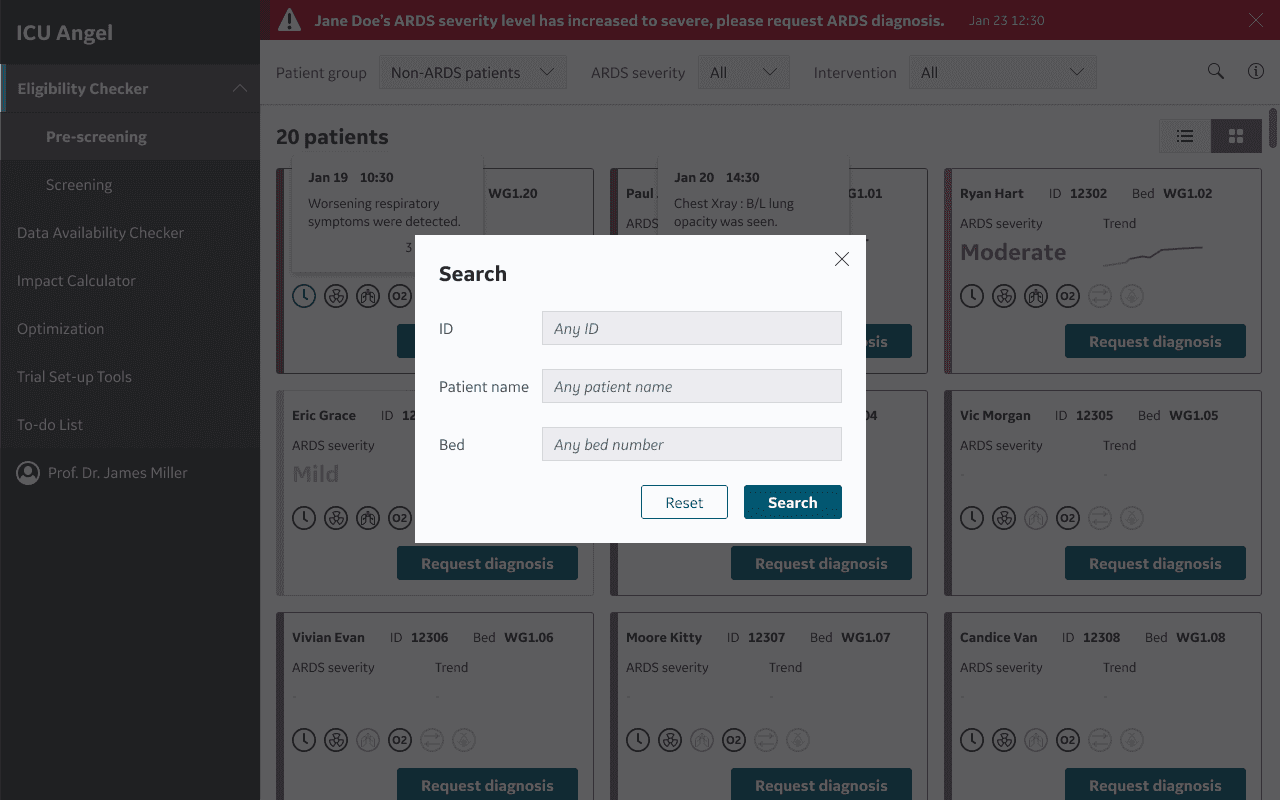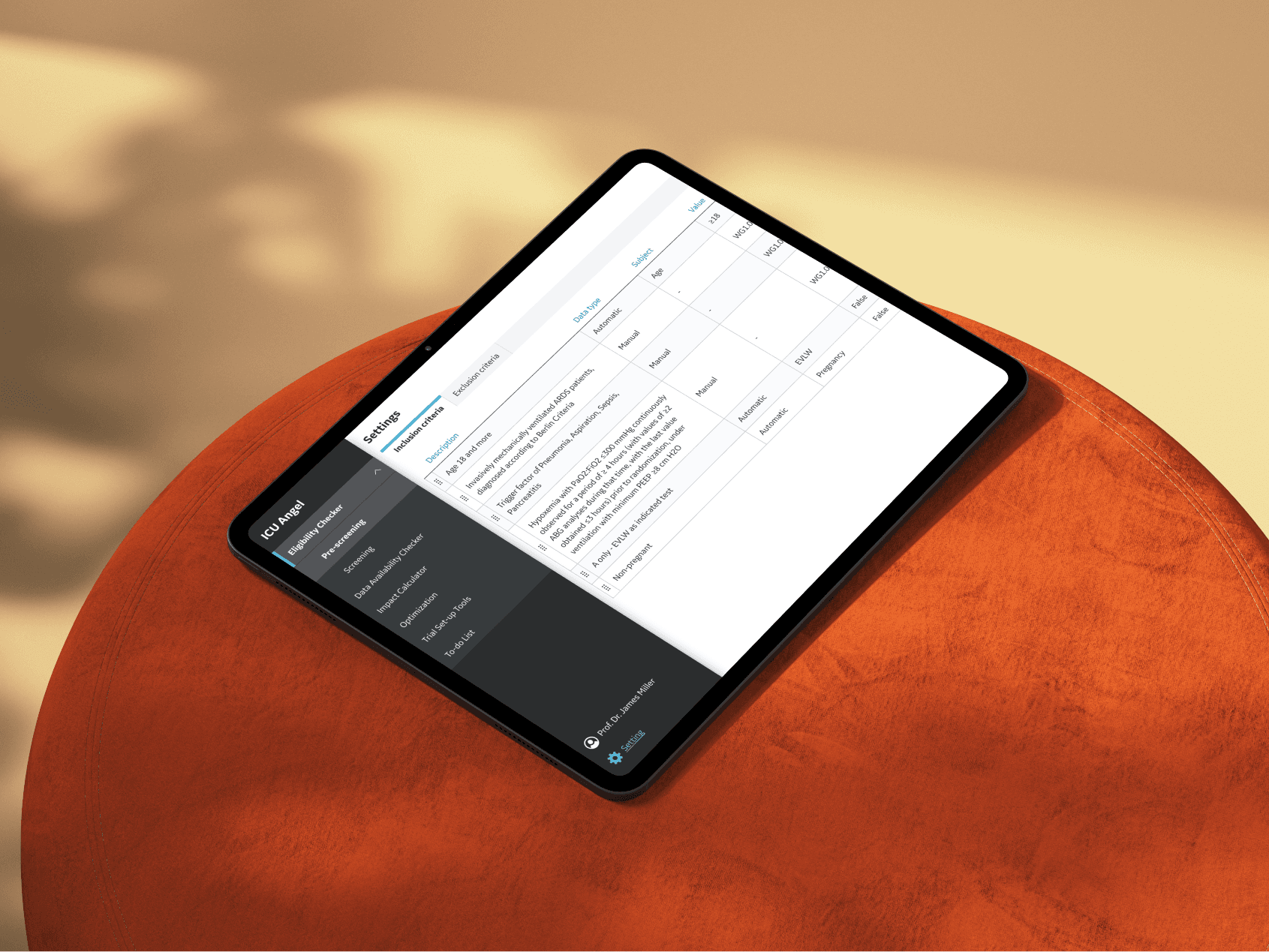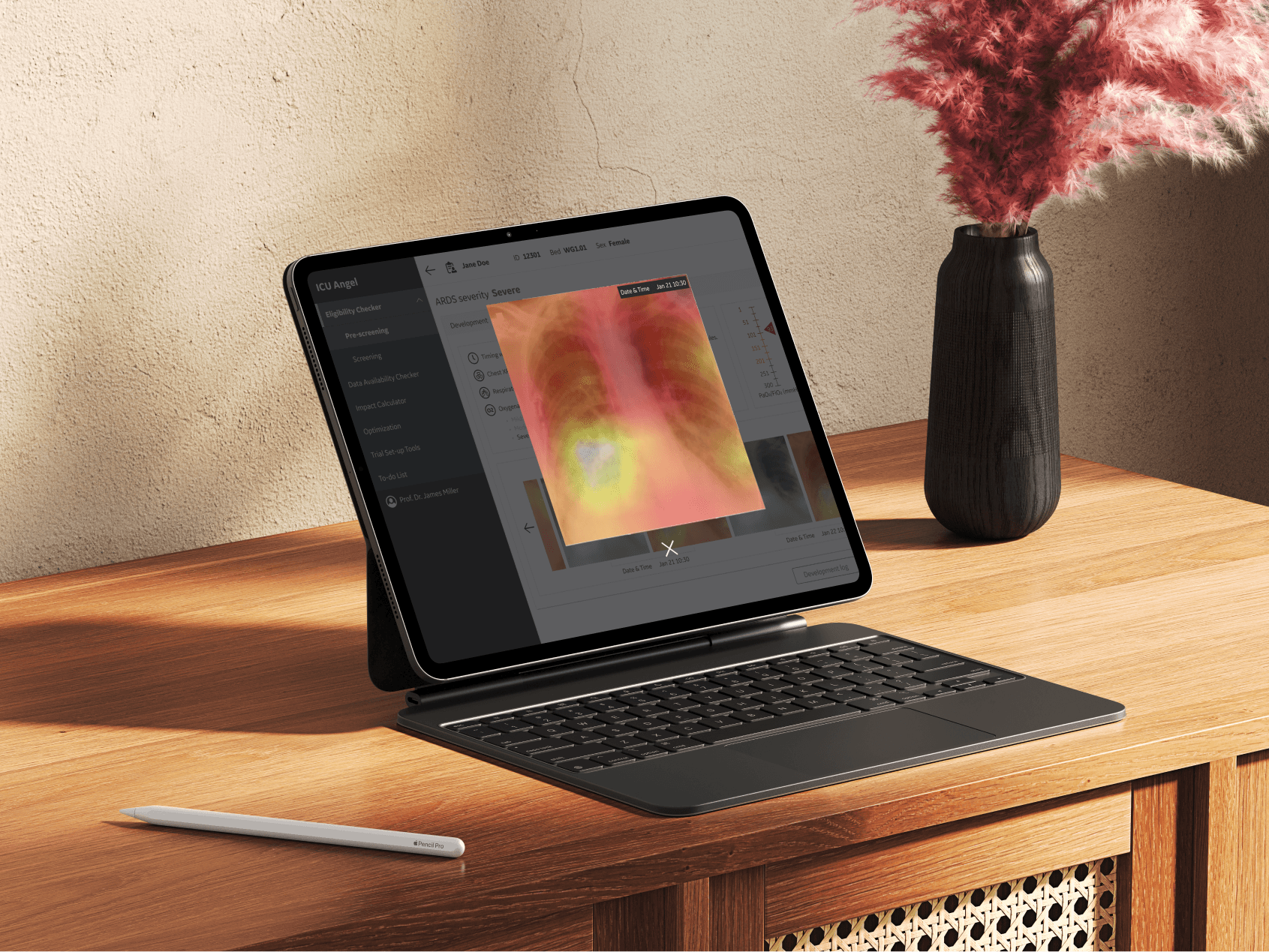About The Project
Project Overview
Role: Senior Product Designer at Bayer (10+ years of UX experience)
Solution: ICU Angel—a hybrid system combining an ARDS medication with a digital monitoring platform
Objective: Provide real-time tracking of patient vitals, disease progression, and medication efficacy for individuals suffering from Acute Respiratory Distress Syndrome (ARDS)

I was tasked with designing a digital solution, later named ICU Angel, that integrated seamlessly with a new ARDS medication. My responsibility was twofold:
Create a user-friendly interface allowing doctors and nurses to monitor disease progression and medication effectiveness in real time.
Support principal investigators with aggregated data insights that could improve research and treatment protocols.
User Research & Insights
Interviews: Conversations with ICU physicians and nurses to uncover daily pain points in ARDS management.
Observation: Embedded sessions in real ICU environments, mapping existing workflows and identifying inefficiencies.
Surveys: Distributed to a broader set of ICU staff, gathering quantitative data on alert fatigue, perceived system usability, and medication compliance.
Wireframe Testing: Early testing with a pilot group to confirm we were meeting essential requirements and addressing critical user journeys.


Conceptualization
Drawing from user research, we envisioned ICU Angel as a unified interface that:
Tracks ARDS progression using algorithmic graphs.
Alerts healthcare professionals in real time to any critical changes.
Integrates seamlessly with existing hospital systems to populate patient data automatically.
Wireframing
We created low-fidelity sketches outlining:
Stage-Based Visualizations: Each ARDS stage (at-risk, severe, etc.) is color-coded for rapid recognition.
Alert Management: A hierarchical system displaying urgent alerts at the forefront, minimizing alarm fatigue.
Medication Tracking: A dedicated section for viewing drug administration times and dosages.
Prototyping & User Feedback Loop
Next, we developed interactive prototypes to simulate the core workflows, from admission and medication scheduling to real-time vitals monitoring.
Hands-On Testing: ICU staff and principal investigators tested these prototypes in structured sessions.
Key Feedback: Doctors desired customizable alert thresholds, nurses requested simpler data entry forms, and IT staff advocated for robust data security frameworks.


Context & Problem Statement
ARDS is a life-threatening condition in intensive care units (ICUs), requiring swift, informed interventions. Yet, many hospitals lack a unified, real-time patient-monitoring system that ties seamlessly into ARDS pharmacotherapy.
Key Challenges
Fragmented Monitoring: No single platform offered a consolidated view of vitals, disease stage, and drug effectiveness.
Data Disparities: Nurses and doctors navigated multiple systems to track shifts in patient status—slowing their response time.
Limited Research Insights: Principal investigators struggled to analyze broader treatment outcomes across diverse patient populations without unified data.


Stakeholder Analysis: Who We’re Designing For
Doctors
Need: A reliable, data-driven way to monitor ARDS progression and swiftly adjust treatments.
Pain Point: Overwhelming volume of patient data, with critical changes often buried or delayed.
Nurses
Need: An intuitive interface that integrates with daily workflows and minimizes extra steps.
Pain Point: Alert fatigue and cumbersome data entry that detracts from patient care.
Principal Investigators
Need: A scalable data repository to track drug efficacy across various ARDS stages and patient demographics.
Pain Point: Disparate data sources, making large-scale clinical analyses inefficient and error-prone.


Impact Metrics & Outcomes
Post-implementation surveys and usage data revealed:
Faster Response Times
40% Reduction in the average response time to critical patient alerts.
Analysis: Real-time visual cues helped teams prioritize interventions more effectively.
Efficiency Gains
30% Increase in overall efficiency for patient monitoring tasks.
Insight: By unifying data in a single dashboard, nurses and doctors spent less time toggling between multiple systems.
Improved Patient Outcomes
20% Decrease in adverse ARDS events within monitored ICUs.
Significance: Timely alerts and better data accuracy ensured earlier detection of potential complications.





